
Där vindar möts: En komplett guide till yrken och karriärer
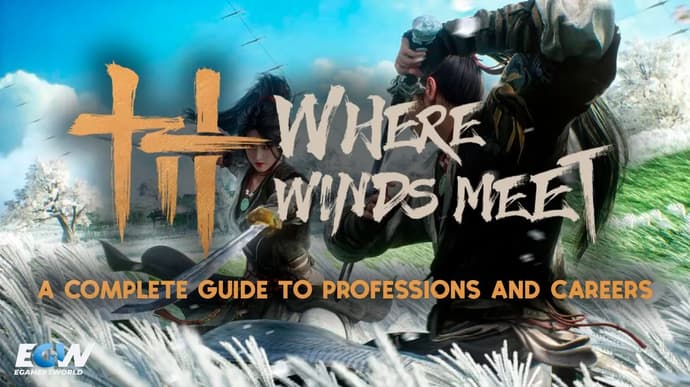
After spending some time playing and looking more closely at Where Winds Meet, I realized the game actually hides a surprisingly well-designed profession system behind its wuxia-style gameplay. These activities - often referred to as careers or specializations - let your wandering fighter become a doctor, a master of debates, or even something like a lawyer for hire. Professions are directly tied into bounty hunting, crafting, and the game’s social systems.
Right now, there are only two specializations available: Healer and Scholar. But even this small set is enough to unlock card-based minigames, new ways of interacting with NPCs, and additional routes for long-term character progression. And in this blog, I’ll break down both of these professions.
Where Winds Meet: Professions and Career System Explained
Professions in Where Winds Meet function as separate character specializations that exist alongside your weapons, Mystic Arts, and Inner Ways. They don’t replace your combat build – they simply enhance it by giving access to:
- New non-combat activities (healing and debating).
- Mini-games used in certain quests and world events.
- Dedicated crafting lines for consumables and talismans.
- Small stat increases as the profession levels up.
In the global version, the list of Jianghu Careers is quite small: only two are available – Healer and Scholar. Both are unlocked through a dedicated Careers Menu, which displays their level, status (locked or unlocked), and simple hints on how to gain access.
| Career | Core fantasy | Main gameplay | Key outputs |
| Healer | Physician treating illnesses and injuries | Turn-based healing card battles | Potions, cures for NPCs and players, stat-impacting progress |
| Scholar | Orator and legal advocate | Turn-based debate card battles | Talismans, cleared bounties, debate rewards, stat-impacting progress |
In the game, other types of occupations are also mentioned – Doctor, Merchant, Orator, Architect, Bodyguard, and Ferryman. These describe roles tied to various forms of craftsmanship and the gameplay opportunities they could eventually offer. However, unfortunately, these occupations, just like most sects, are not part of the small official Jianghu career list available at launch. For now, the fully implemented career gameplay is limited to just two paths – Healer and Scholar.
Professions, like sects, will be expanded later, and a lot of information about them is already known. In our blog Where Winds Meet Sects: How To Join Them Full Guide, we’ve collected everything there is to know about sects: how to join them, what bonuses they provide, and what kind of gameplay you can expect once you’re inside.
Healer career: how the healing mechanics work
The Healer profession turns medicine into a full tactical minigame. Instead of a simple “use an item to heal” interaction, the game presents each illness as an enemy you fight using special treatment cards.There are more than a dozen different illnesses scattered throughout the world, affecting both NPCs and other players. You can heal anyone except your own character.
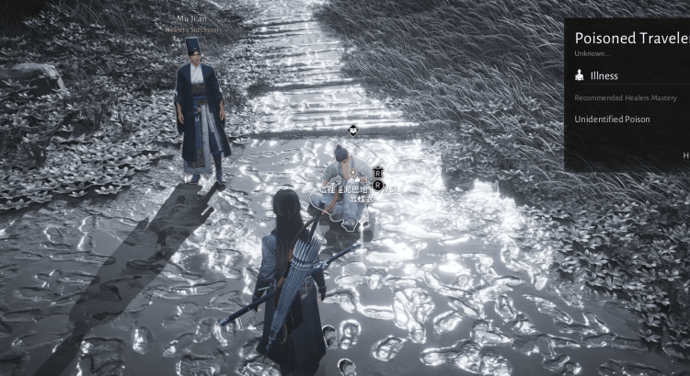
Each healing session plays out as a turn-based card battle:
- You use treatment cards, spending a limited pool of action points;
- The “disease” pushes back with its own effects and patterns;
- Your goal is to defeat the ailment by managing your cards and resources wisely.
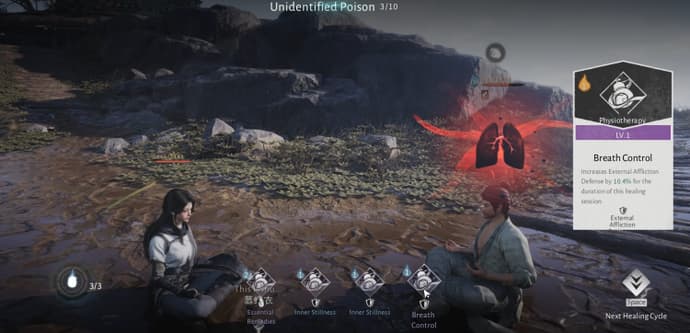
Victory in these “battles” gives more than just completing a quest or helping a passerby. The Healer profession grants access to crafting combat potions, which you can use in your own fights or sell to other players, supporting the in-game economy.
Healer progression happens through an item called the Career Notebook. You receive it for profession-related activities, and it is also sold in limited quantities in shops, with stock refreshing every week. As your Healer level increases, your character’s stats improve as well, making this profession useful even for players who don’t intend to role-play a doctor.
Scholar career: debates, talismans, and legal defense mechanics
Scholar is the opposite side of the profession system: here the focus isn’t on treating the body, but on the power of words. The Scholar relies on debate mechanics, persuasion, and functions as a kind of legal specialist within the Jianghu bounty system.
How Scholar debates work
Debates are also conducted as turn-based card duels, but here the focus is not on healing, but on rhetoric. You build a deck of argument cards and play them, spending a shared resource pool. Each card has three key parameters:
- cost (how many resources are spent when using it),
- effect (damage, silence, defense, and other actions),
- and a rhetorical style that interacts with other styles following a rock-paper-scissors principle.
The style system forms a closed loop:
- “Infuriating Nitpicker” beats “Yapping.”
- “Yapping” surpasses “Wild Boasts.”
- “Wild Boasts” wins against “Heart Stab.”
- “Heart Stab” is effective against “Infuriating Nitpicker.”
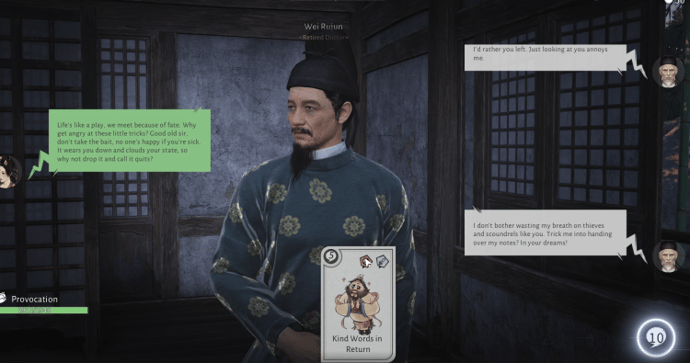
It’s not just the strength of each card that matters, but whether you can predict your opponent’s style. The early Scholar quests ease you into the system: you receive specific cards such as Heart Stab and face NPCs who frequently use the Wild Boast style. This teaches you how to chain damage, defensive buffs, and control effects like silence while keeping track of your style advantage.
Scholar Career Entry: First Steps and Initial Questline
The Scholar path opens once your character reaches level 13 and is able to reach Moonveil Mountain. An exploration quest called “Legacy: Scholar’s Path” will appear on the map. Here’s how it generally goes:
- You head to the Deeforage Grove area on Moonveil Mountain (the easiest starting point is the Stillwind Slope teleport).
- You climb up the mountain and meet Yan Huaijin, a respected writer who believes he has lost the power of his words.
- You enter the nearby building, go up to the second floor, and find Wei Rujun, a former doctor who is about to burn his medical notes.
- You use the Gift of Gab debate system to challenge him. You fight with Heart Stab and similar cards, while he responds with Wild Boast cards.
The duel itself acts as a tutorial: you are gradually given new cards and shown how effects like temporary silence work, which deals damage and blocks the opponent’s next move. After winning and speaking with Wei Rujun again, your character promises to preserve his writings. Outside, Yan Huaijin acknowledges your success, and at that moment the Scholar career is officially unlocked at the Novice rank. You also receive an upgraded card (“Unarguable”, level 2) in the Infuriating Nitpicking style. From there on, you’re free to travel the world and “battle” other NPCs.
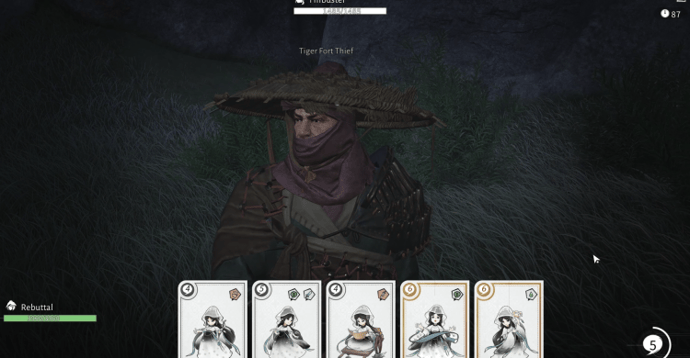
Like the Healer, the Scholar increases their rank using Career Notebooks. These drop from debates or can be purchased in shops, and each new rank boosts your character’s core stats.
How careers interact with the rest of the game: roles, mystic arts, and broader occupations
The career system exists alongside several other character progression layers in Where Winds Meet. At the same time, the game features:
- Mystic Arts – active techniques such as Tai Chi, Dragon’s Breath, or Drunken Poet. They are unlocked through quests or skill theft and upgraded with materials like Ebon Iron and Vicious Fruit.
- Inner Ways – passive internal arts that define your stats and how you synergize with weapons and Mystic Arts.
- Weapon-based combat styles – combo sets tied to specific weapon types, from spears to umbrellas.
- Extended occupations – thematic roles such as Merchant or Architect. They describe possible activity paths involving trade, construction, or protection, but they exist separately from the main career system.
Careers differ from Mystic Arts and Inner Ways in a few key ways:
| System | Primary focus | How it’s used | Progression driver |
| Mystic Arts | Combat and traversal skills | Active abilities on cooldown, used in fights and puzzles | Resources (e.g., Ebon Iron), tier and rank upgrades |
| Inner Ways | Passive stat tuning | Always-on effects that shape your build | Leveling and material spend |
| Careers (Healer, Scholar) | Non-combat minigames, crafting, social systems | Triggered via side quests, bounties, and the Careers Menu | Career Notebooks and career-related side content |
The main synergy here isn’t about mechanics but about progression direction. A Healer who constantly cures illnesses and brews potions can sell those potions to buy better gear and advance their combat Arts. A Scholar who earns Bounty Tokens and crafts talismans can strengthen their raid group with buffs or trade these items within the economy.
While professions slightly affect your stats, their core purpose is to unlock new ways to earn and spend resources, as well as give access to world events that pure combat builds usually overlook.
How to unlock and quickly develop careers: ways to obtain Healer and Scholar
Career activities progress separately from the main story.
- The Healer path unlocks through special side quests that serve as tutorials for the healing card system. They gradually introduce you to treating sick NPCs and, later, players.
- The Scholar career becomes available after completing the Legacy: Scholar’s Path quest in the Moonveil Mountain area, which you can only access starting from level 13.
Career-related content is easy to spot in the quest list and exploration journal: it is marked as Legacy, Career, or Gift of Gab-style activities. These quests usually appear alongside other Jianghu legacy missions. It’s best to complete them early so your career progression grows in parallel with your combat level and doesn’t fall behind.
Career Notebooks and weekly shop rotations
Career progression is tied to Career Notebooks, and they form the foundation of profession leveling. These records function as universal experience for both Healer and Scholar:
- They are awarded for completing healing encounters, debates, and other career-related quests.
- They are sold in shops in limited quantities, with stock refreshing every week.
- Spent Career Notebooks raise the profession level, and as that level grows, your character’s stats increase as well. That’s why they’re worth upgrading even if the minigames feel like secondary activities.
Since shop stock is limited, any player who wants to advance professions without delays should follow a simple routine:
- Complete all available career quests as soon as they appear.
- Check the merchants after the weekly reset and buy the available Career Notebooks.
- Split progression between Healer and Scholar instead of leveling only one role – this keeps you flexible for both healing and legal support.
- At times it may feel a bit tedious and slow, but it’s genuinely worth the effort.
Why you shouldn’t ignore professions even if your build is all about fighting
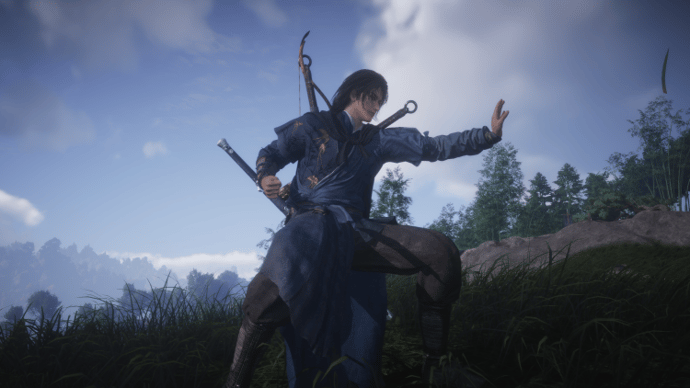
In-game professions in Where Winds Meet may seem like a simple pleasant addition, but in reality they directly affect high-end gameplay:
- Healer grants access to crafting combat potions, allowing you to stockpile powerful consumables for tough bosses or sell them for money.
- Scholar creates talismans with temporary stat bonuses, giving a noticeable advantage in difficult encounters.
- Both careers raise your character’s core attributes through their own leveling, becoming another progression path alongside Inner Ways and gear upgrades.
- The Jianghu bounty system periodically forces you to engage in debates and legal defense. Ignoring professions means you will have to rely on other players more often.
- Professions change how you perceive the world. Sick or angry NPCs turn from background figures into sources of quests and rewards. False accusations and bounty hunts become not just punishment but a form of social interaction where Scholars negotiate with players for tokens and case outcomes.
With future updates and ongoing development, it will be important to combine professions with your combat style. In the blog “ Where Winds Meet: How to Unlock All Combat Techniques? ” we covered all combat techniques and provided a detailed guide on how to unlock them. Together, Healer and Scholar make the profession system not just a set of side activities but an essential part of life in the world of Where Winds Meet – healing, debating, protecting reputations, and building a name valued no less than the strength of a sword.

Kirill är artikel- och bloggskribent på eGamersWorld och började arbeta där 2024. Hans primära fokus är analys och att skapa innehåll om esport. Med många års erfarenhet av spel bidrar Kirill med djupa branschinsikter för att leverera högkvalitativt och engagerande material.
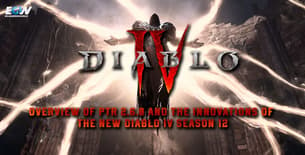 Diablo IV säsong 12 PTR & Patch 2.6.0: Komplett översiktUpptäck vad som är nytt i Diablo IV säsong 12. Komplett PTR 2.6.0-översikt som täcker nya Uniques, Bloodied Sigils och det förenklade Paragon-systemet.
Diablo IV säsong 12 PTR & Patch 2.6.0: Komplett översiktUpptäck vad som är nytt i Diablo IV säsong 12. Komplett PTR 2.6.0-översikt som täcker nya Uniques, Bloodied Sigils och det förenklade Paragon-systemet.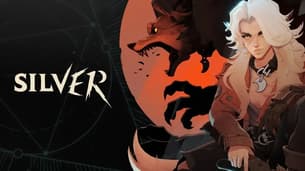 Ny Deadlock Hero Silver Översikt: Färdigheter, roll, föremålUpptäck Deadlock Hero Silver - färdigheter, spel och rekommenderad artikelbyggnad.
Ny Deadlock Hero Silver Översikt: Färdigheter, roll, föremålUpptäck Deadlock Hero Silver - färdigheter, spel och rekommenderad artikelbyggnad. LCK Cup 2026: Gumayusi och Zeus misslyckas med att förhindra HLE:s utslagningHanwha Life Esports misslyckas på LCK Cup. Lär dig mer om de synergiproblem som Gumayusi och Zeus står inför i den nya uppställningen och lagets eliminering.
LCK Cup 2026: Gumayusi och Zeus misslyckas med att förhindra HLE:s utslagningHanwha Life Esports misslyckas på LCK Cup. Lär dig mer om de synergiproblem som Gumayusi och Zeus står inför i den nya uppställningen och lagets eliminering. Roblox Anime Card Clash-koder februari 2026Få de senaste Roblox Anime Card Clash-koderna! Lös in för kraftfulla bonusar för att bygga ditt ultimata däck.
Roblox Anime Card Clash-koder februari 2026Få de senaste Roblox Anime Card Clash-koderna! Lös in för kraftfulla bonusar för att bygga ditt ultimata däck.


